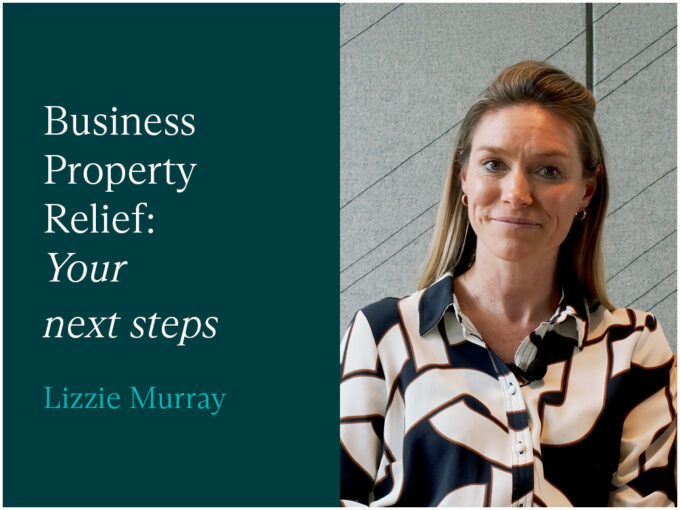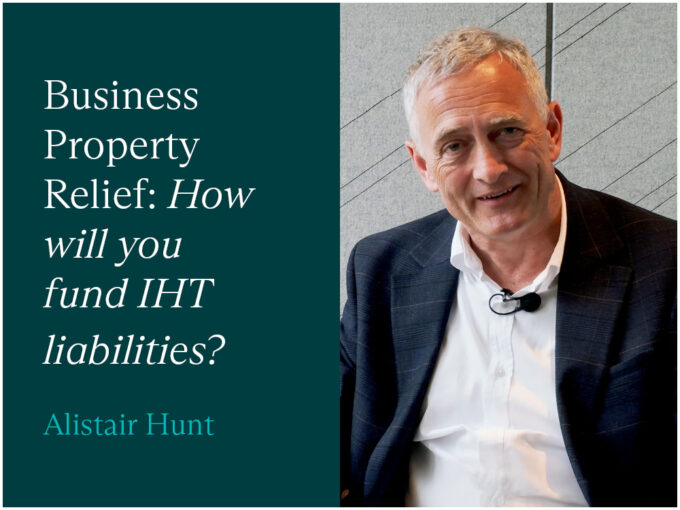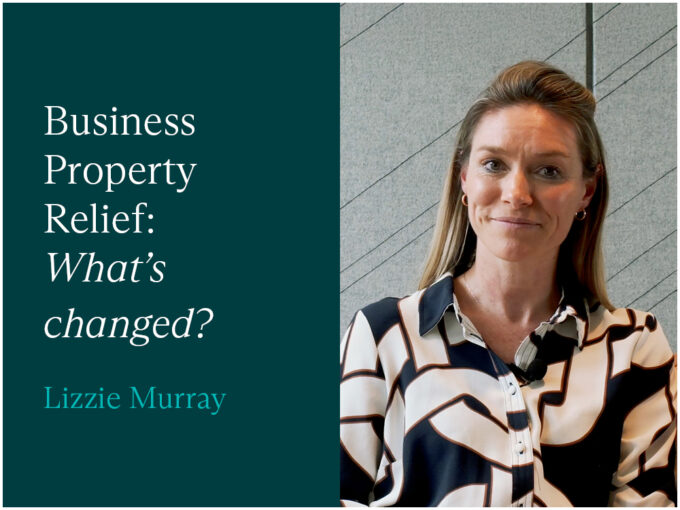Talking about death, let alone planning for it, rarely feels like a pleasant task. However, getting your affairs and key financial arrangements in order may give you peace of mind and make things easier for the friends and family members you leave behind.
Inheritance planning tips
Make sure there’s a valid, up-to-date will in place. Key points to consider are:
- Any specific requests regarding funeral and burial arrangements.
- Who should be your executors (the people who will administer your estate).
- Guardians for any children under 18.
- The gift of any specific assets (known as specific legacies) eg “My grandfather clock to my godson”.
- What should happen to the residue – all remaining assets once all liabilities, including any inheritance tax (IHT), and any specific legacies have been paid.
For complex estates, the testator (the person who has made the will) may also prepare a letter of wishes. These are non-legally binding but set out various points the testator would like their executors to consider, typically where a trust is created by the will.
It’s also a good idea to have Lasting or Continuing Powers of Attorney, which will enable family members or friends to manage your affairs should you lose mental capacity.
Consider any pre-death planning, such as outright gifts, or transfers into trust during your lifetime.
Registering a death
If in the UK, the death must be registered, and the government informed. For this, the Tell Us Once service is very useful.
The executors’ (or administrators’, if the deceased died without a valid will) role is then to collect in the estate, settle any liabilities, including any IHT due, and distribute the assets in accordance with the will (or the intestacy rules, if there’s no valid will, or if the will doesn’t dispose of all the assets).
Applying for grant of probate
A grant of probate, or confirmation if you’re in Scotland, gives the executors the legal right to administer the estate. For very simple estates, where the deceased only had savings, and/or assets owned as joint tenants (which pass automatically to the surviving joint owner), this may not be necessary. Otherwise, the grant is needed before the bank accounts and other assets can be accessed.
Before the probate application can be made, if there is IHT due, a return must be completed and the tax paid. IHT is calculated based on the value of the estate at death, and gifts made in the seven years up to the date of death, less any available nil rate bands (NRBs) and reliefs, at 40%:
- The NRB has been frozen at £325,000 since 2009-10 and is currently frozen until 5 April 2030.
- Gifts to individuals (known as Potentially Exempt Transfers, or PETs) or payments into trusts in the seven years prior to death will reduce this amount, potentially to nil. There may also be IHT (or further IHT) to pay on those transfers.
- There’s also a £175,000 residence NRB for estates worth less than £2 million, although over this threshold it tapers away.
- If the deceased was married and is the second to die, they will also benefit from their former spouse’s unused NRBs.
Potentially up to £1 million of the estate could therefore be free from IHT. The way the NRBs and previous transfers interact can be complicated, and we recommend obtaining professional advice unless the position is straightforward.
IHT is due within six months of the end of the month of death and the IHT return is due within twelve months of the end of the month of death.
Once the IHT return has been filed and the tax paid, the probate application can be made. Executors can appoint a solicitor to make the application on their behalf.
One of the executors’ first tasks is to make a list of all assets held by the deceased at death, together with all their debts and liabilities. You can make this easier for your executors if your affairs are in good order.
The deceased’s personal tax affairs will need to be brought up-to-date, which may involve filing a personal tax return to the date of death and any returns outstanding for previous years. Submission of the return and payment of any tax liability are due by 31 January following the end of the tax year of death, although the deadline for payment is extended to 30 days after probate is granted.
Estate administration
Once probate has been granted, the executors will have access to the bank accounts and assets of the deceased. They must first pay any outstanding debts of the estate as well as other expenses, such as probate fees and funeral expenses. In more complex cases (outside of Scotland), a notice should be placed in The Gazette to give any unknown creditors chance to come forward.
In all but straightforward cases, accounts should be prepared for the administration period.
Once any IHT has been paid by the executors, there’s no further IHT due on the transfer of assets to the beneficiaries (although this could trigger an income tax charge).
However, the sale of assets by the executors is a disposal for capital gains tax purpose, based on the value of the asset at the date of death. Any capital losses made by the executors will not be transferred to the beneficiaries, so the executors should look to realise gains by selling other assets before transferring anything remaining.
If income is received after death or gains arise on assets that have been sold, tax returns may be required. Returns should be filed by 31 January following the end of the relevant tax year and any tax liability paid by the same date.
Distribution of an estate to beneficiaries
The administration period ends when all assets and liabilities have been established, at which point the final distributions can be made to the beneficiaries.
It’s important to note that, in Scotland, legal rights can be exercised by spouses, civil partners and children which entitle them to a share of the deceased’s worldwide net moveable estate (moveable being anything that isn’t heritable property – broadly land and buildings). Legal rights cannot be overridden by a will, therefore executors should ensure that those potentially entitled discharge (ie disclaim) their legal rights before distributing property.
Beneficiaries will also be taxable on any income arising during the administration period from assets they receive in the tax year they receive distributions to that value, and statements of income should be prepared for each beneficiary.
If the estate is insolvent as the deceased owed more than the assets held, there is a strict order in which the liabilities should be paid. In this case some creditors may not be paid in full and therefore the beneficiaries may not receive anything.
How we can help
You don’t have to start planning for the end of your life alone – it’s important to have conversations with family members and your advisers sooner rather than later. For further tips on IHT, dealing with estates, or general financial planning advice after death, please get in touch with Will Leonard.
Contact Us
Director, London
Key experience











